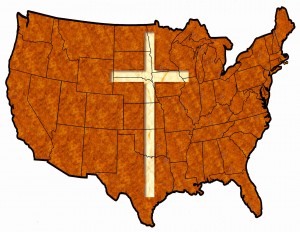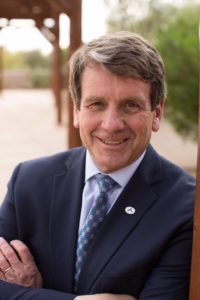 WASHINGTON — At the instruction of President Trump, Attorney General Jeff Sessions has released a memo to all government departments and agencies that provides guidance as to how federal laws pertaining to religious liberty protections should be interpreted.
WASHINGTON — At the instruction of President Trump, Attorney General Jeff Sessions has released a memo to all government departments and agencies that provides guidance as to how federal laws pertaining to religious liberty protections should be interpreted.
“Religious liberty is not merely a right to personal religious beliefs or even to worship in a sacred place,” he wrote. “It also encompasses religious observance and practice. Except in the narrowest circumstances, no one should be forced to choose between living out his or her faith and complying with the law.”
Sessions then provided 20 principles pertaining to religious liberty, as well as pertinent case law on the matter. The notations included: “The free exercise of religion includes the right to act or abstain from action in accordance with one’s religious beliefs” (principle 2), “The freedom of religion extends to person and organizations” (principle 3) and “Americans do not give up their freedom of religion by participating in the marketplace, partaking of the public square or interacting with the government” (principle 4).
He outlined as examples that religious entities may not be excluded from secular aid programs—in reference to the June U.S. Supreme Court decision in Trinity Lutheran Church of Columbia v. Comer—and may not be prohibited from distributing religious materials simply because of their content.
The Internal Revenue Service (IRS) also may not enforce the Johnson Amendment against churches and religious nonprofits in circumstances where it would not likewise enforce the law against secular nonprofits, Sessions further advised.
He additionally explained that the government cannot compel a person or organization to act contrary to their religion, stating that “a government action that bans an aspect of an adherent’s religious observance or practice, compels an act inconsistent with that observance or practice, will qualify as a substantial burden on the exercise of religion.”
Sessions cited as examples that the Bureau of Prisons cannot prohibit an incarcerated Muslim from growing a beard, and the Department of Health and Human Services (HHS) may not require religious employers to cover contraceptives that conflict with their convictions under the threat of fines.
“[R]eligious organizations may choose to employ only persons whose beliefs and conduct are consistent with the organization’s religious precepts,” he outlined. “For example, a Lutheran secondary school may choose to employ only practicing Lutherans, only practicing Christians, or only those willing to adhere to a code of conduct consistent with the precepts of the Lutheran community sponsoring the school.”
The government also may not condition the provision of grant money or contracts on the relinquishment of certain religious characteristics or hiring practices.
“To the greatest extent practicable and permitted by law, … religious observance and practice should be reasonably accommodated in all government activity, including employment, contracting and programming,” Sessions wrote.
Quoting from the 1952 U.S. Supreme Court ruling in Zorach v. Clauson, he concluded, “[Government] follows the best of our traditions … when it respects the religious nature of our people and accommodates the public service to their spiritual needs.”
Read the memorandum in full here.
Faith-based groups and members of Congress alike applauded Sessions’ memo, expressing optimism that his guidance might help correct recent infringements on the religious rights of Americans.

“This guidance will help protect families like the Vander Boons in Michigan who were threatened with the effective closure of their family-run business for simply expressing a religious point of view on marriage that differed from that of the federal government. And it is another step toward fulfilling President Trump’s promise to protect a host of Christian colleges, the Little Sisters of the Poor, and others from having to choose between violating their consciences and paying crippling fines to the IRS,” said Michael Farris, president of Alliance Defending Freedom (ADF).
“We have seen public officials criticized for their religious beliefs, elected representatives who have called for a ‘religious test’ for public office, and marketplace discrimination against religious people who own and run businesses according to the dictates of their individual consciences,” noted Bob Goodlatte, chairman of the House Judiciary Committee. “Yet the Constitution is clear: the freedom to believe and act in accordance with belief is fundamental and non-negotiable for all Americans. I applaud Attorney General Sessions for his commitment to uphold religious liberty throughout all federal agencies and departments.”
Become a Christian News Network Supporter...


